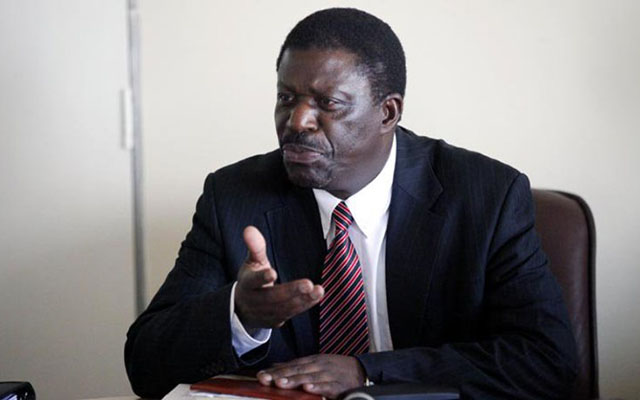Govt to set up informal business task force

Livingstone Marufu
Government plans to set up a special taskforce to convince informal traders to embrace the use of plastic money as part of efforts to stabilise prices and supply of essential commodities in the sector. The development came at a time when Government is monitoring the availability of goods in shops in the retail sector so that unscrupulous dealers don’t ambush customers by price hikes.
The task force committee, will specifically focuses on the informal traders in down town Harare. Industry and Commerce Minister Dr Mike Bimha, told The Herald Business that the committee will tackle the down town price headache by persuading them to use electronic transactions.
“We know the importance of the informal sector in the country, we are well aware of their needs and challenges in transacting in electronic system. Consequently, a special taskforce headed by Industry and Commerce Minister, will be set up to deal with the issues of supply, pricing and the use of electronic payment system. It’s not an overnight thing, we will handle the issue with caution as it is an important sector, which most of our people live on. Industry and Commerce and the Small to Medium Enterprises and Cooperative Development Ministries, will work out how the plan will be executed to persuade our informal traders to use the modern trends of plastic money,” said Minister Bimha.
Dr Bimha said Government has prepared a comprehensive report for both Cabinet and parliament about the state of basic commodities supply in the country and its sustainability in the future. In the report, there discussions with the Consumer Council of Zimbabwe to come up with recommended price list of certain basic goods just like in South Africa, Coca cola and other products have recommended prices. It is believed that if goods breach recommended price, consumers have the right to dispute that price as it will be out of their recommended price net.
The Grain Millers Association of Zimbabwe (GMAZ) made its maximum price list on Tuesday. Millers set maximum wholesale and retail prices for maize and wheat flours, rice and salt produced by its members across the country in line with Government’s recent price monitoring programme. Earlier this month Government placed cooking oil, mealie-meal, bread, flour, sugar, rice, salt, chicken, eggs, beef, fresh milk, laundry soaps, washing powder, cement, fuel and energy under monitoring in terms of their pricing models.
Subsequently, the miller’s representative body has listed five products, which include mealie-meal, rice, salt, cake flour and self-raising flour under their price recommendations. Besides the special task force, Industry and Commerce is also conducting checks of retail shops and wholesalers in major cities and towns to monitor availability of basic commodities and their prices.
The development came after panicking customers hoarded goods in the last two months following social media claims — magnified by the private media — of an impending shortage of basic commodities and a spike in black market currency trading. This triggered a sharp increase in the prices of basic commodities, though the situation is starting to normalise. Dr Bimha said commodities’ prices still vary from place to place, though prices in general have normalised to the pre-panic buying period.
The committee is also working with Zimstats to check whether the prices were increasing at an alarming rate before the panic buying incident or after. The special task force, which is under the chairmanship of Industry and Commerce Minister, will be operating on a permanent basis to ensure that the country is not ambushed by profiteering business people. Cabinet task force include Finance and Economic Development Ministry, Tourism, Environment and Hospitality Ministry, ICT Ministry, Mines and Mining Development, Home Affairs, Energy, SMEs Ministry, Media, Information and Broadcasting Services, Youth Development, Indigenisation and Economic Empowerment Ministry and the Reserve Bank of Zimbabwe. Government will continue supporting the private sector by availing foreign currency to ensure access to critical imports.











Comments